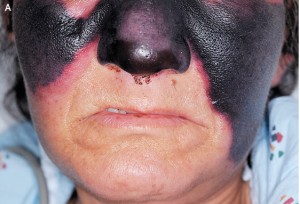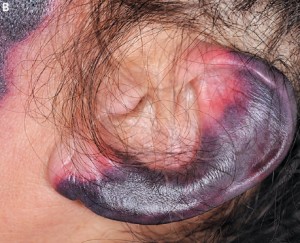Update: November 15, 2010
The following is from a Barclays Capital research note (Mark Purcell et al)
BAYER/JNJ: Why Xarelto doesn’t seem superior
ROCKET-AF, the pivotal trial for Xarelto in stroke prevention, has demonstrated that the drug was non-inferior to Warfarin with regard to all-cause stroke and non-central nervous system embolism. Disappointingly, however, the intention-to-treat superiority analysis failed to show the drug had an advantage, statistically, over Warfarin. This would suggest that the drug failed its pre-specified test for superiority. The ROCKET-AF design paper published in the American Heart Journal states: ‘If the noninferiority criterion is satisfied, then superiority for the primary efficacy end point will be tested in the safety population…’. The safety population is NOT the per protocol population used to show the 21% risk reduction mentioned in the press release and hence the trial seems to have failed the test. This means that the commercial perspectives are unclear relative to the competitor Pradaxa, as differentiation will have to rely on dosing and other aspects that may be considered secondary to the primary efficacy and bleeding risk.
(The following is our original note)
November 9, 2010
One of the bigger drug trials to be discussed next week at the AHA meeting will be the Bayer/JNJ trial called ROCKET-AF, which studied Xarelto (rivaroxaban) (a direct factor Xa inhibitor) to prevent stroke in patients with non-valvular atrial fibrillation. Recall, Xarelto already went before an FDA advisory committee to review the indication to prevent deep vein thrombosis (DVT) after orthopedic surgery and the FDA surprisingly issued CR letter, effectively rejecting that indication. The FDA wanted more data on possible liver damage caused by the drug.
Bayer/JNJ did not bother to reply to the CR letter for DVT and they now plan to pursue the bigger indication of A-Fib. Therefore, ROCKET-AF is crucial to the future of this drug.
The unmet clinical need that Xarelto would satisfy is an oral anticoagulant that is easier to take and safer than warfarin. Boehringer Ingelheim recently received FDA approval for their own warfarin alternative called Pradaxa (dabigatran) (a direct thrombin inhibitor downstream in the cascade from factor Xa, see our previous video stories). Although Pradaxa’s RE-LY trial was a non-inferiority trial, the drug was actually superior to warfarin. The big question to be answered at the AHA is whether Xarelto too was superior. The press release did not address this.
In addition to the superiority claim, which is not in the Pradaxa label, by the way, the marketing battle between Xarelto and Pradaxa will also revolve around the QD dosing for Xarelto versus the BID for Pradaxa. Also, the dual renal/liver excretion of Xarelto makes it safer for renal failure patients, whereas Pradaxa is excreted only by the kidneys and the dosage must be reduced.
Harlan M. Krumholz, MD, of Yale wrote, “Now we await the ROCKET AF presentation. The key questions will be:
- Were the event rates comparable to what might be expected in practice — or is there evidence that the study population was highly selected?
- Was the warfarin treatment optimized? How well was the INR maintained?
- Are there any safety concerns with rivaroxaban? How do bleeding rates compare?
- Is there any suggestion that the drug is particularly good or bad for a particular subgroup? This would be an exploratory analysis and would not likely be considered definitive.
- Is there any evidence that rivaroxaban is more effective than warfarin?
And then, if at the end of the day, rivaroxaban really looks to be no better than warfarin — will it find a niche in clinical care?”
Sanjay Kaul, MD, of Cedars Sinai Medical Center, and member of the first Xarelto FDA AdCom, wrote, “Rivaroxaban represents the first of an interesting class of drugs (oral Xa inhibitors) that have the potential to alter the landscape of anticoagulant therapy. Whether rivaroxaban finds a niche in clinical care will depend on the balance of ancillary advantages in convenience, safety, and tolerability versus ‘noninferior’ or ‘superior’ efficacy. if superiority is demonstrated, then it will likely be eminently competitive with the recently approved dabigatran.”




